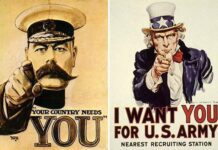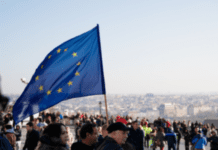The Khobragade incident has brought to the fore once again the larger issue of diplomatic immunity. The India-U.S. spat arose essentially out of differing interpretations of ‘diplomatic immunity’. The concept of diplomatic immunity is enshrined in the Vienna Conventions on Diplomatic Immunity of 1961 and on Consular Relations of 1963 though it has a history going far beyond the 20th century. It is now considered part of customary law. The concept is essentially meant to enable diplomats to do their jobs, protect their rights and defend themselves from hostile actions or pressure from the host country. In addition to the conventions, diplomatic immunity and privileges today are based on the principle of reciprocity. For instance, Russia and the U.S. have given blanket diplomatic immunity for all their diplomatic and consular staff. Some countries have bilateral arrangements with other countries according to which their diplomats enjoy visa-free travel in each other’s countries.
However, countries and diplomats have often misused diplomatic and consular immunity to escape local laws. For instance, the U.S. attempted to invoke diplomatic immunity for Raymond Davis after he killed two Pakistani men, even though he was only a contractor for the Central Intelligence Agency (CIA). Similarly, countries often do not respect diplomatic immunity. A recent example is that of India, which refused to let the Italian Ambassador leave the country until the two Italian marines accused of killing Indian fishermen returned to India to face trial. The U.S. has therefore been found to have misused the diplomatic immunity clause on a number of occasions. There is a feeling in many countries that while the U.S. refuses to honour diplomatic immunity for foreign government officials when they allegedly breach local laws, it expects other countries to give its diplomats (as well as non-diplomats) diplomatic immunity when they are caught in a similar situation in other countries.
The latest is the Devyani Khobragade incident, where the manner in which the U.S. treated the Indian official was clearly in breach of the Vienna Convention on Consular Relations (VCCR) of 1963. Article 41 of the Convention says, “Consular officers shall not be liable to arrest or detention pending trial, except in the case of a grave crime and pursuant to a decision by the competent judicial authority.” However, it adds that if at all “criminal proceedings are instituted against a consular officer…the proceedings shall be conducted with the respect due to him by reason of his official position”. The U.S. position has been that as a Consular staff, Khobragade enjoyed immunity from prosecution for acts performed in the exercise of consular functions but did not have full diplomatic immunity. This was challenged by India, which claimed that she had full diplomatic immunity. The issue was finally resolved with India transferring the official to its UN mission and claiming full diplomatic immunity, to which the U.S. agreed after a few days.
In the meantime, India had revoked several unilateral privileges to American diplomats and consular staff. For instance, it has issued new identity card to U.S. consular staff which does not accord them protection against prosecution for serious crimes. It revoked several unilateral diplomatic immunities granted to U.S. diplomats and consular staff, removed security barriers around the U.S. Embassy and brought in new restrictions for the functioning of the American Center, among other things. All of these actions still fall within the ambit of reciprocity since the U.S. does not grant these privileges to the Indian Embassy or consulates in the U.S.
Having resolved the diplomatic spat, India and the U.S. are currently negotiating the issue of diplomatic immunity. But it is unlikely that India will reinstate the privileges that it has taken away from the American diplomats unless the same privileges are provided to the Indian diplomats and consular staff in the U.S. So, the state of diplomatic immunity between the two countries is likely to remain the same. However, this might be a good time for revisiting the Vienna Convention of 1963 and giving the same immunity and privileges to consular staff as diplomats. This is necessary because the nature and scope of consular functions has significantly changed and widened over the last couple of decades; in fact, these days consular staff often perform the duties of diplomatic staff. The Consul General today acts as a mini-ambassador in the area under his/her consular jurisdiction. He/she is in constant touch with political leaders like governors, congressmen, etc in his/her jurisdiction and has to play a huge role in attracting investments and promoting trade with his/her country. This is a far cry from earlier times, when consular duties only involved issuing passports, visas and looking after their citizens in their juridical territory.
At the same time, diplomats and consular staff must also follow local laws and not flout them just because they have immunity. After all, for the representative of his/her country, following the host country’s laws is the first step towards gaining respect for one’s own country in the host country. In the unlikely event (after all most diplomatic and consular staff are law abiding) of a diplomat or consular official flouting local laws, they must be accorded diplomatic and consular immunity. Their own country can take action against them, but not the host country. At the most, if it is a serious enough crime, the host country can ask for the offending diplomat to be withdrawn.
The whole unseemly incident is a case of mismanagement by both the U.S. (which acted in unseemly haste) and India (which acted slowly, not realising the power of the humanitarian lobbies in the U.S.). On a more optimistic note, the episode should prompt the U.S. to treat India as an equal partner. One must keep in mind that, while the diplomatic row between the U.S. and India was occurring, much of the international community was quietly cheering on India for standing up for a principle over which the U.S. has ridden roughshod many times in many countries. The issue is also reflective of the fact that while the India-U.S. relationship has been pushed forward by the Indian and American political leaders, the bureaucracies on both sides are yet to fully shake off their Cold War era misgivings about each other despite the 30 plus annual dialogues that the two sides engage in. And that is an unfortunate fact about a relationship that will be crucial in shaping the Asian, and also the global order, in the years to come.








